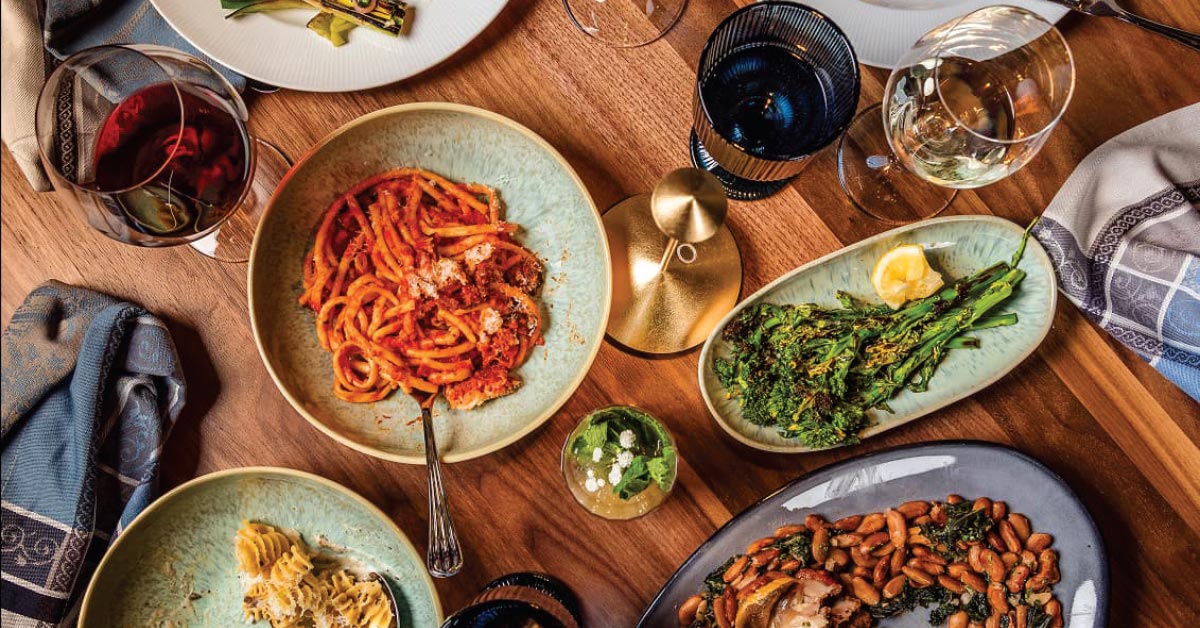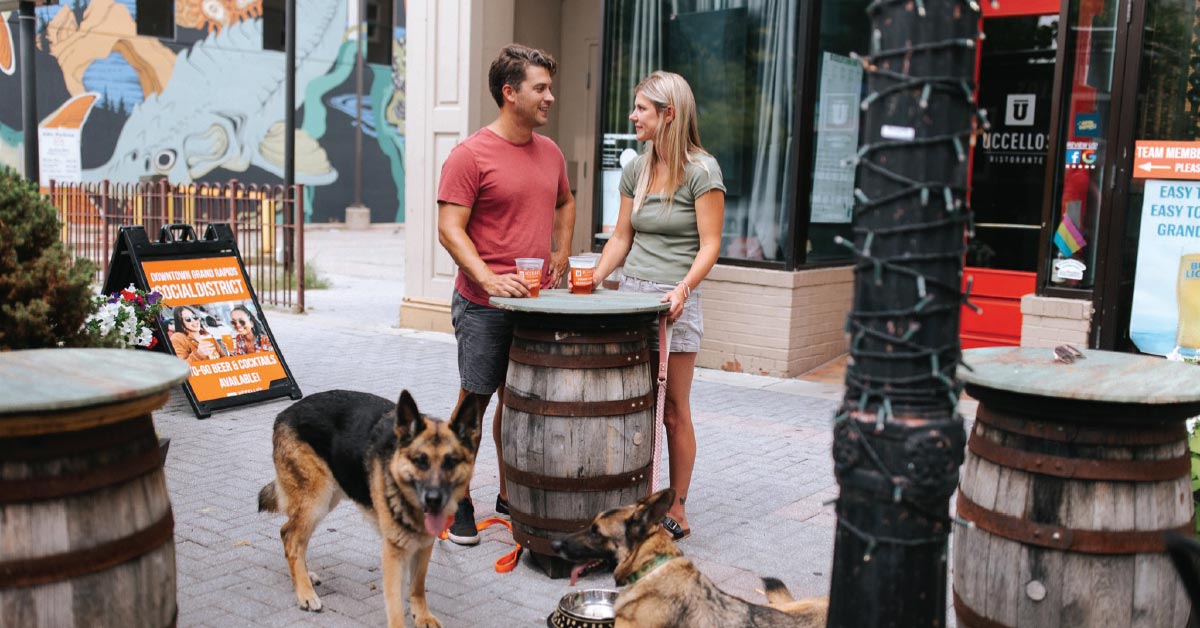Sitting next to a crackling hickory fire outside Saugatuck’s new fried chicken-and-barbecue joint The Southerner, chef Matthew Millar reflected on this moment in his career, which finds him going back to his roots.
“I’m a blue-collar guy,” Millar said. “I never wanted to be an artist. I always wanted to be somebody who just did something well.”
Yet, in the next breath, a flash of Millar’s earlier training as a literature major at Grand Valley State shows when he drops a reference to W.B. Yeats’ admonition to Irish poets to learn their trade instead of succumbing to current fashion.
“It always really resonated with me, not for poetry, but for cooking,” he said. “You should be surrounded by it. You should be living in it, instead of trying to turn into something else.”
That combination of proletarian intellectualism and deep fascination with agrarian culinary traditions informs Millar’s cooking. He approaches his work with a reverence for the history behind dishes, focusing on making them correctly so they can tell their stories, while his artistic contribution happens subtly on the edges.
“I find the basics of cooking … to be a lot more compelling to me than looking around for the next novelty,” Millar said.
Millar calls The Southerner, located at 880 Holland St., his “love letter to Appalachia.” It’s named for the passenger train that ran between New York and New Orleans from the 1940s until the 1970s. That era saw tremendous migration from the South as people chased good Rust Belt jobs.
“Detroit was a boom town,” Millar said. “The auto industry was ruling the nation and Detroit was a great place for work. Appalachia at that time was not.”
Among those transplants was Millar’s grandfather, who fled the collapse of the lumber industry in eastern Tennessee for a job at Ford. Millar’s family may have been working class, but sitting around his grandma’s dinner table provided moments of comfort and delight. Millar still cites his nana, Laura Waters, as one of his biggest influences.
“Her food was so good. It was like my introduction to the idea that food can be something more than something to eat, that it can be something that brings you real joy,” Millar said. “That’s what we want to do here. We want to replicate this experience of being made so insatiably happy by the things and the people that are in front of you.”
Millar, who I first met in the ‘90s when we were both GVSU undergraduates, is a veteran of the West Michigan restaurant scene. He got his start at Gaia before moving through stints at the Gilmore Collection, Gibson’s and Butch’s in Holland.
With the 2003 opening of Fennville’s Journeyman, Millar began to be regarded as one of the Midwest’s it-chefs. He stretched to the boundaries of his culinary vision. Everything was the highest quality, locally sourced, expertly prepared. Sure, it had a reputation of being a bit spendy, but Millar tried to justify the higher price point on the plate — and the rapturous reviews suggest he succeeded.
In a 2006 article I wrote about Journeyman’s role in the burgeoning revitalization of Fennville, Millar said he actively avoided opening a resort town restaurant. “We didn’t want to fill up with 400 fudge-seeking tourists every Saturday afternoon being in downtown Douglas or Saugatuck,” Millar said at the time.
A decade later, Millar’s attitude on that point has mellowed enough that he’s excited about opening a restaurant that welcomes the tourist traffic he once shunned. It’s a softening that comes in part from the tax-related shuttering of Journeyman at the height of the U.S. economy’s 2008 armageddon.
“Showing up to the restaurant one day and getting thrown out by the taxman is certainly a powerful wake-up call for you to say, ‘Your standard’s one thing, but you’ve got to live life,’” Millar said. “Your standard is meaningless if the door is closed.”
But, deeper still, Millar relishes the additional challenge of finding a bridge between his creative vision and prevailing customer tastes. Stung by the closure of Journeyman, his next gig was leading New Holland’s quest to increase the quality of food at its flagship pub.
Faced with this more populist crowd, Millar said he was forced to ask himself: “What does that ranch dressing-drinkin’ motherf***er want that I can do? Where’s the bridge?” That conversation became more interesting to the chef than “just operating in this little bubble of niceties.”
In 2010, Millar was the chef behind the launch of the Grand Rapids’ hip-upscale Reserve. His work there attracted attention on a larger stage and Millar was a two-time semifinalist for the prestigious James Beard Award. While he continues to be proud of the work he did at Reserve (and displays an obvious affection for the place), he also recognized that he was out of his natural habitat.
“We did very good work there,” he said. “But every time I walked into that dining room, I just knew it wasn’t me. I didn’t belong in that dining room.”
He left Reserve in 2013 to launch a restaurant. His first concept — a celebration of Michigan’s French immigrant history called St. Anthony — never got off the ground. In the interim, he kept himself busy, including learning cheesemaking at Evergreen Lane Creamery and experimenting with the dishes that will be mainstays at The Southerner.
In early May, there was a morel mushroom-themed dinner at The Southerner that was a reward for backers of the restaurant’s Indiegogo campaign. The event featured courses by guest chefs and the assembled culinary firepower was impressive: Paul Virant, Chris Pandel, Joel Wabeke, Matthew Green, Matthew Pietsch and James Rigato.
Even with all the talent in the room that night, Millar emerged as the star of the show. It was touching to watch the way his peers worked to pay tribute to the preternaturally gifted chef who is on the cusp of getting his groove back in a serious way.
“You think it’s about us,” said Rigato, a Top Chef contestant who works at The Root in White Lake. “It’s not about us. It’s about Matt Millar. That’s why we drove here tonight.”
For more information, visit The Southerner’s Facebook page.





